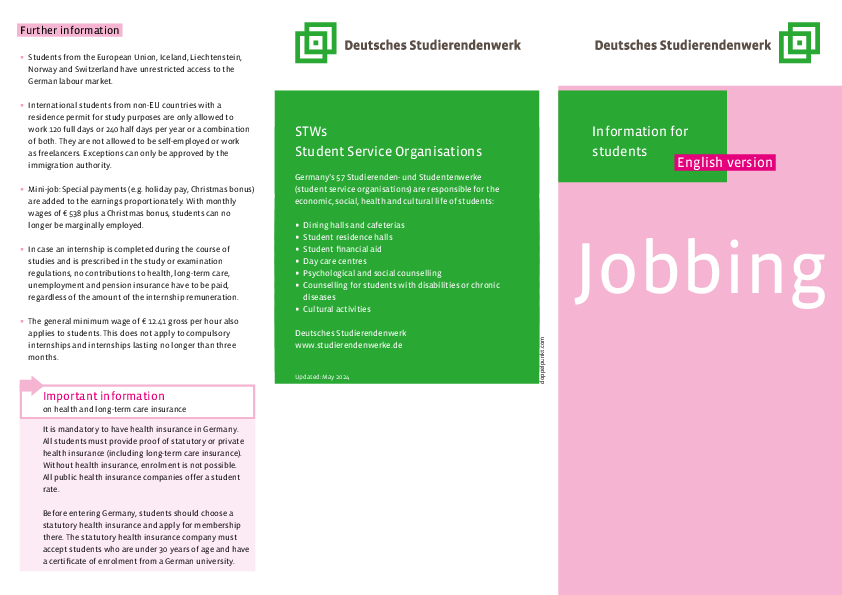No mon
no fun

There are a few things to consider when it comes to part-time jobs during your studies.
Here you can find our tabular overview of job opportunities to get you started:
You can also find more information on the website our association, Deutsches Studierendenwerk (DSW).
By phone, video and on site
Free of charge and confidential: We are there for you. Gladly also in English.
Unfortunately, no contact persons could be found.

